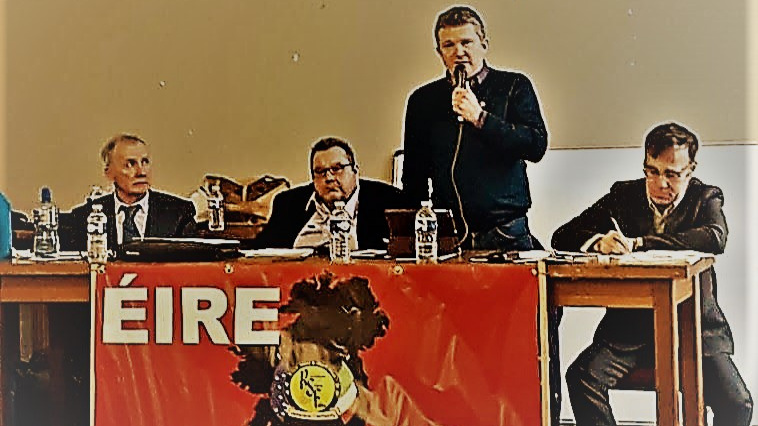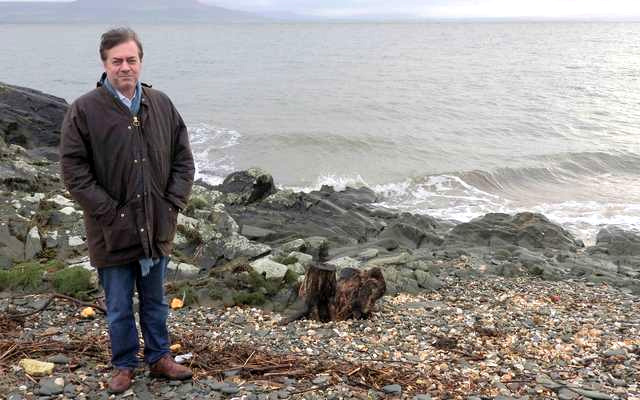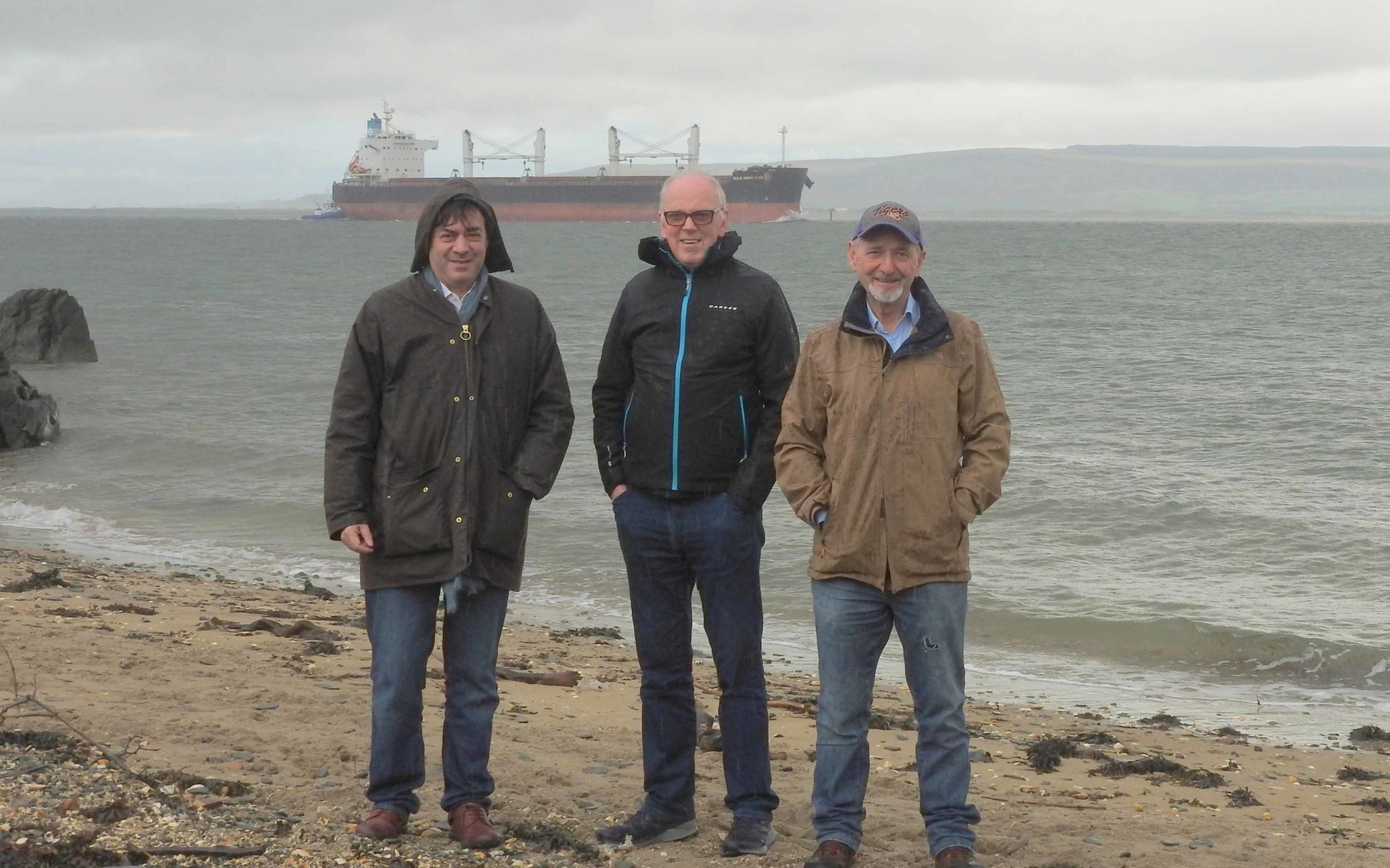Address to Éire Nua Seminar at Conway Mill, Belfast, organised by Sinn Féin Poblachtach — February 23rd 2019.
Dia daoibh a chairde and a quick word of thanks to the organisers for the opportunity to speak here this afternoon — go raibh mile maith agaibh.
Brexit and new constitutional realities
As Brexit impacts on constitutional realities, bringing to the fore the still-unresolved Partition issue in Ireland, the notion and prospect of Irish Unity has been energised anew — perhaps as never before. The reunification of Ireland is now mainstream political conversation, and not before time.
The implications of Brexit, when set aside emerging demographic realities, make it incumbent that politics in Ireland, as they relate to Irish Unity, focus on how best to ensure a just and lasting peace that includes all citizens, in all their diversity and regardless their differences — differences the 1916 Proclamation rightly described as being ‘carefully fostered’ by an alien government, for its own political ends. These must be overcome if a meaningful peace is to take root.
At the heart of any process towards same must be the notion that democratic authority resides with the people and that people themselves should exercise real power. As political change speeds towards us, a Republic that stands for all of its citizens — which can command all of their allegiances no matter the divisions of the past — is the goal and indeed the promise to where our politics must set.
The Éire Nua policy, developed by the Republican Movement as a means to bridge divisions in the nation post-British withdrawal, is ideally placed to form the basis of such a Republic. In these times of change, its vision of a decentralised 32-county democracy is of newfound relevancy and worth considering anew.
But if we are ever to arrive at Éire Nua we must have more than a mere understanding or belief in the policy, though we must have these too, of course. We must find means to reach the Irish people with what it has to offer, that in turn they might come to see its value as a template for peace, with justice, in an independent all-Ireland republic.
A wider initiative than realised
With avenues of change prised open by Brexit, we must seek out a political realignment, making clear that Republicanism is about more than a British withdrawal from the North, that it seeks also — at a national level and as a national initiative — a shift in the relationship between the government and the governed, this within a rights-based democracy where the citizen and his or her needs are paramount.
As a contribution to that effort, Éire Nua seeks a democratic renewal pointed towards all sections of the country and not just the North, while, yes, helping bridge historical differences there, differences encouraged to divide our people. But while the Ulster Protestant community are often seen as the ‘beneficiaries’ of Éire Nua — and as such to whom the policy is targeted — their concerns of being dominated under a United Ireland are shared by other regions within the current 26-county area.
Thus, we are dealing here with a wider and more advanced initiative than often is realised, one that seeks to devolve decision making capabilities — the length and breadth of Ireland — to the lowest effective democratic unit, giving our communities a real say in decisions that impact their lives. It is there where the true strong point of Éire Nua lies.
The revisionist agenda of ‘establishment Ireland’
Well we might note rising talk among the chattering class that nowhere in nationalism lies detail as to how a ‘32-county Ireland’ would work. There is, however, contrary to their notions, a detailed plan long in place — that of course being Éire Nua. If our would-be intelligentsia have yet to hear of it there should really be no surprise, for they don’t wish to entertain anything outside their narrow revisionist agenda — an agenda that seeks an ‘agreed new Ireland’ where the British stay on, in a reduced capacity, while the Irish agree to it. Éire Nua stands tall no matter their scheming.
While having a detailed proposal intact and in place, arguably leaving us ‘ahead of the game’, we must, however, as a matter of priority, capitalise on the advantage this affords us. In this respect, the task before ourselves is to reach out to other Republicans — likewise to broader society — with a vision that they, too, might come to share.
Should we do so, building effective support and support systems, ‘establishment Ireland’, with its revisionist intentions, will be forced to shift tact. We must, then, build the means to reach the people, presenting them with a viable alternative to both Partition and any ‘soft’ United Ireland those who uphold it might set toward — a critical job of work at this critical time.
Developing means of political delivery
Building support for Éire Nua will involve mobilising our people behind its idea. Seeking out endorsements from political and community organisations — including those we may not like or agree with; handing out leaflets; administering social media campaigns we manage, fund and drive ourselves; putting up signs and banners across Ireland; engaging the ordinary people of Ireland at events, universities, rallies and gatherings; getting featured in major news stories and articles; putting on significant campaign events, such as this one today; creating featured videos; submitting ads to the media; doing up pieces of analytical content and publishing them to platforms we build ourselves — these are initiatives we can and should be engaged in and there lies the key to building the idea of a 32-county republic, premised on Éire Nua.
We need, then, in this respect, to make better use of the resources before us than perhaps we are doing. There is a massive moment in our history coming at us and we are not ready. We must do better. Éire Nua offers us solid terrain and an immediate point of reference to proceed upon, now and not later. But we need more than theory and with it, alongside, the correct strategy. To others unsure of what it is we’re offering we say, let’s build this initiative together. If it were good enough for all those years, until the Adams faction undermined it for narrow ends, then why not now?
The hard reality is that, now in this moment, there are only two structured options on the table for a future United Ireland — Éire Nua or a further and revised outworking of the Good Friday institutional framework. And we are running out of time. In that context, we should commit anew to do all in our power to ensure it’s the former that wins out. It is there where lies the Republican struggle in 2019.
A platform for Republican struggle post-Brexit
With Brexit looming, as Ireland moves to reconcile tensions unleashed with those already in play, Éire Nua presents a viable platform to build on. The proposals it contains can be the building blocks of a re-born Irish Republic — one deserving of our people; one they need now more than ever: a republic that can unite all Irish people, in their diversity and differences, in a constitutional order where all have influence, all have protection and all have a role within the affairs of the nation.
But we must get our house in order — and sooner rather than later. The time to put this in place is now. In these times of change lie new opportunities to reconnect the Republic with the broad mass of the people. That is the task before us and we cannot afford to wait. We must push on and Éire Nua is there, in our hands, giving us the ability to so. It is time to up the ante — the sacrifices of the past demand it. We must go from here today determined to do just that.
Go raibh mile maith agaibh arís a chairde. Onwards to the Republic — An Phoblacht Abú.
Original article; https://seanbres.wordpress.com/2019/02/24/eire-nua-template-for-a-just-and-lasting-peace/
Éire Nua policy: https://republicansinnfein.org/2015/07/01/eire-nua-and-noraid/





